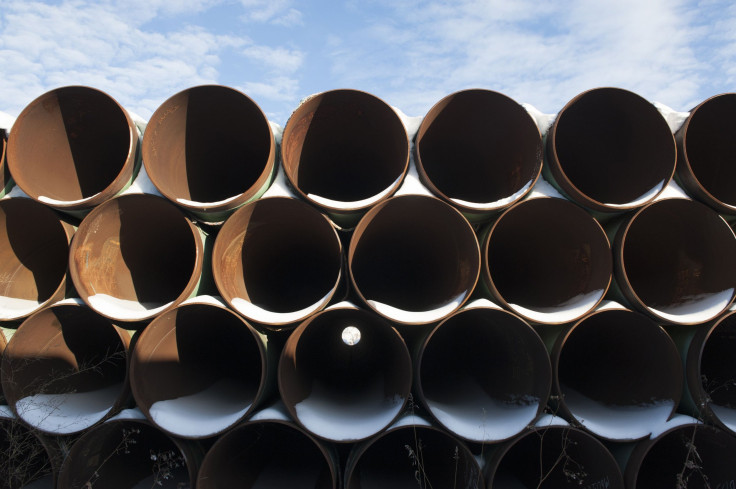Keystone XL Pipeline Project Vote: Oil And Gas Industry Gave $45K Each To Congressman Who Voted 'Yes'

The oil and gas industry, which stands to benefit from the creation of the proposed Keystone XL oil pipeline, gave about $45,000 on average to the 270 members of the U.S. House of Representatives who voted in favor of the controversial project, according to an analysis by MapLight, a nonpartisan research organization that focuses on the influence of money on politics. The bill to approve the Keystone pipeline was passed by both chambers of Congress, but President Barack Obama has indicated he would veto the legislation.
On average, House members who voted for Keystone received about 13 times the amount of campaign contributions, $45,218, from the oil and gas industry than did their colleagues who voted against it, $3,559. The gap was smaller between the 29 Democrats who voted “Yes” on the Keystone bill and the 151 Democrats who voted “No” on it. Democrats in favor of Keystone received about $18,141 apiece from the oil and gas industry -- about 5.3 times as much as the $3,444 each donated to Democrats in opposition to the project. The bill passed the House by a 270-152 vote Wednesday. Only one Republican, Rep. Justin Amash of Michigan, voted against Keystone.
Rep. Mike Pompeo, R-Kansas, took in the highest amount of campaign contributions from the oil and gas industry among House members who voted for the Keystone bill: He received more than $327,000 from the industry, according to MapLight. Rep. Henry Cuellar, D-Texas, received the most from the industry among Democrats who voted “Yes” on the Keystone bill, with more than $112,000 in contributions. There were 22 Republicans who got more money from the industry than him.
MapLight’s analysis came on the same day it revealed senators who voted for Keystone received about $250,000 each from the oil and gas industry. The bill passed in the Senate, 62-36.
The proposed Keystone XL pipeline would help transport crude oil from the tar-sands area in western Canada to refineries on the Gulf Coast of the U.S. The oil and gas industry would be one of the biggest beneficiaries of the project. Obama has threatened to veto the legislation on a number of grounds, including environmental concerns and the belief that the State Department, not Congress, should sign off on the project because part of the pipeline would be situated in another country.
© Copyright IBTimes 2025. All rights reserved.






















